Antoine Roex, Stalks
Machine learning is transforming the way skills are assessed, paving the way for more objective and personalised approaches. Computer-assisted assessment systems are gradually becoming widespread across various sectors, enabling faster and more precise performance diagnostics. However, challenges remain in ensuring the reliability of algorithms and the fairness of these new tools. Discover how this technological revolution is shaping the world of assessment and what the future holds.
Machine learning and its implications for skills assessment
Machine learning algorithms analyse vast amounts of data to identify recurring patterns and predict outcomes. Computer-assisted assessment platforms can offer adaptive tests that adjust difficulty levels in real time. Recent research highlights the effectiveness of these systems in detecting subtle nuances in performance, enhancing diagnostic precision. The use of behavioural data, such as response time or problem-solving approaches, further enriches the analysis beyond merely recording correct or incorrect answers. Educational science experts view this as a way to assess learners’ progress with greater accuracy while reducing human error. Some organisations have already integrated these methods into their recruitment and training processes, as the speed of processing helps save resources. However, the integration of artificial intelligence into assessment tools raises ethical concerns regarding transparency and data privacy. While current advancements demonstrate significant potential for rethinking skills assessment, many challenges must still be addressed before widespread adoption.
Challenges in adopting computer-assisted assessment
Large-scale implementation requires raising awareness among trainers, learners, and employers. The reluctance to entrust assessments to an algorithm persists, fuelled by a lack of transparency in decision-making processes. Algorithmic bias can also affect result accuracy if initial datasets are too narrow or lack diversity. Some candidates fear that machines may overlook contextual factors such as motivation or socio-cultural background. Educational institutions and businesses must therefore invest in staff training to avoid misinterpreting the data provided by scoring tools. Integrating new technologies also demands an appropriate infrastructure, both in terms of hardware and the organisation of assessment programmes. The associated costs may seem high, but in the long run, time savings and increased objectivity help to justify the investment. Without a clear strategy and regulatory framework, the adoption of automated skills assessment risks remaining marginal or being met with scepticism.
Opportunities offered by machine learning
The rise of advanced algorithms enables an unprecedented level of personalisation, as platforms can adjust difficulty and content based on intermediate results. Trainers save time on marking tasks and can focus more on individualised support. Detailed reports, including charts and progress analyses, allow precise identification of areas for improvement. This level of granularity strengthens stakeholder confidence, as it significantly reduces human error and enhances fairness in grading. Adaptive approaches can also lead to more inclusive learning experiences by catering to individual needs. Successive assessments become more dynamic, as they continuously measure progress and provide targeted recommendations. In the professional world, these solutions help recruiters better understand a candidate’s potential beyond a mere qualification or a single interview. A responsible and transparent use of these technologies could bring lasting changes to the way society approaches training and skills validation.
Future prospects and precautions
The development of hybrid approaches, combining human intervention with algorithmic analysis, appears to be a promising compromise for leveraging the benefits of automation while maintaining a human touch. Fraud detection and abnormal behaviour monitoring systems are becoming more sophisticated, making assessments more reliable and less susceptible to cheating. Future innovations are exploring the use of voice and facial recognition to evaluate oral skills and non-verbal communication. Despite these advances, it is crucial to establish a clear legal framework to regulate data collection and usage, ensuring candidates’ privacy is respected. Algorithm developers are increasingly working on reducing biases to guarantee fair results. The sharing of best practices between institutions and businesses supports the continuous improvement of these tools. Projections suggest a profound transformation in education and recruitment processes, but vigilance is necessary to prevent potential pitfalls.
Conclusion
The rise of machine learning in automated skills assessment opens the door to numerous innovations aimed at enhancing reliability, fairness, and efficiency. The key challenge lies in striking a balance between algorithmic precision and consideration of human factors. Stakeholders in education, business, and research must collaborate closely to establish technical and ethical standards. Such cooperation is essential to ensure that computer-assisted assessment becomes an effective optimisation tool, offering everyone an equal and transparent opportunity to showcase their potential.
References :



